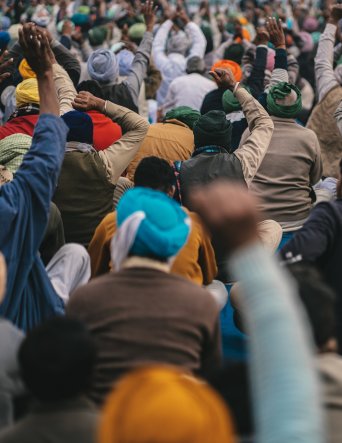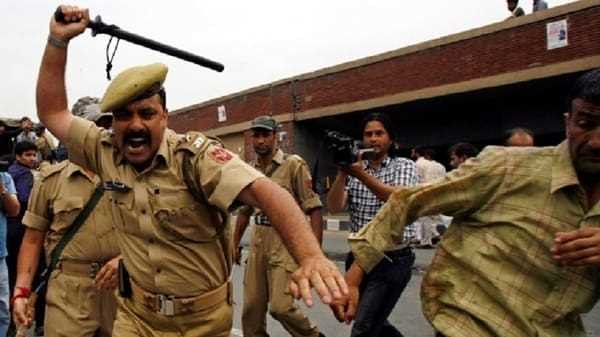- About
- Topics
- Story
- In-Depth
- Picks
- Opinion
- News
- Donate
- Signup for our newsletterOur Editors' Best Picks.Send
Read, Debate: Engage.
| topic: | Freedom of Expression |
|---|---|
| located: | India |
| editor: | Hanan Zaffar |
Last week, several students from Delhi’s prestigious Jamia Millia Islamia University were detained for attempting to screen the banned BBC documentary that showcases Prime Minister Narendra Modi’s role in the 2002 Gujarat riots. Modi, who was Chief Minister of the Gujarat state in 2022 when widespread riots resulted in the murder of hundreds of Muslims, is largely being blamed for condoning the violence and taking little action to stop it.
Students from many other universities across the country were also barred from screening the documentary. Anti-riot forces were also deployed outside the university campuses in the national capital just before the screening and the university premises were subsequently closed.
The documentary has been removed from every online platform in India after the government banned the film, calling it “propaganda” and “anti-India garbage.” The government invoked an emergency law to remove the film from social media platforms and YouTube.
The India’s Information and Broadcasting Ministry also banned sharing any clip from the documentary, while already removing it from all Internet platforms. The Indian government’s move has led to reproval from various quarters, with opposition remonstrating the government for its inability to tolerate criticism.
India’s Supreme Court has also sought a report from the government to explain blocking the documentary in the country.
The BBC had earlier released a two-part documentary series that showed Narendra Modi’s rise in the Hindu-nationalist Bhartiya Janta Party (BJP) through his anti-Muslim politics and rhetoric. The series focuses on his role in the Gujarat riots, which many believe propelled his career through the ranks of his party. The then-Gujarat government, which was led by Modi was accused of complacency facing the targeted killings of hundreds of Muslims during communal riots in 2002. Not only was he accused of not doing enough to stop the carnage against Muslims, but also of intentionally targeting the community.
The documentary also refers to the UK government report from the time, which points at Modi’s involvement in the riots. This is believed to have prompted the government’s decision to ban the film.
The ban on the documentary is not an isolated incident when seen in the context of the government muting the voices of dissent or criticism in the country. The ban is an indication of the state of India’s freedom of the press and media. The present Indian government has widely been reproached for silencing any criticism towards its ideology or actions.
The activists and opposition based out of the country have time and again complained of the government’s policies, by which any dissenting voice is not only silenced but targeted using the government machinery. As such it was not surprising for many that the government banned the documentary that held Modi responsible for one of the worst incidents of communal violence in its post independent history.
Photo by Rupinder Singh

